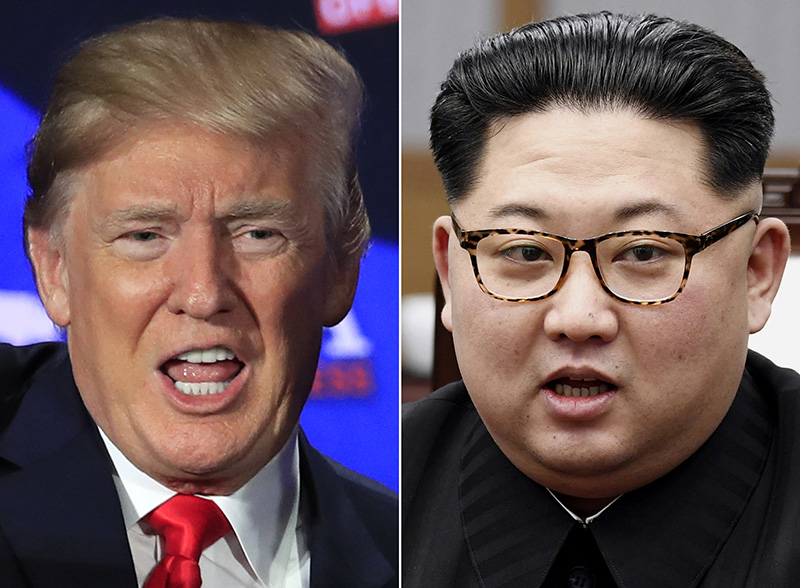Donald Trump is, piece by piece, undoing much of the legacy of his predecessor, Barack Obama.
The latest example is his decision last week to withdraw from the Iran nuclear agreement earlier, but he’s also repealed many rules and executive orders enacted during the prior administration. Trump is only able to erase so much of Obama’s legacy because Obama enacted much of it with his pen and his phone, rather than with Congress. It may be tempting for any president to wield their executive power to their fullest to enact their agenda, but Trump is providing a vivid illustration of the risk of this strategy.
In the case of the Iran nuclear deal, it must be remembered that there was widespread, bipartisan opposition to it in Congress. It would have been difficult to get 51 votes for it in the U.S. Senate, let alone the 67 votes required to ratify a treaty. So, Obama decided to go it alone, signing the Iran deal as an international agreement rather than making it a formal treaty. Under international law, and to most other countries, the agreement had the same force as a treaty would have.
However, under U.S. law, it’s on much shakier ground. Without the approval of Congress as a formal treaty, it was never enacted into domestic law and it can be abandoned as easy as it was signed. In the case of the Iran deal — formally the Joint Comprehensive Plan of Action, or JCPOA — the withdrawal of the U.S. doesn’t formally kill the agreement, as it’s a multilateral agreement including other nations as well.
Ever since it was signed, the agreeement was attacked by critics on both sides of the aisle, and rightly so — it’s a bad deal that President Obama never should have agreed to in the first place. The deal gave Iran plenty of time to slowly wind down its nuclear activities, over the course of 10 years or more, while providing relief from sanctions — including the immediate unfreezing of assets held overseas. The agreement did limit Iran’s nuclear capabilities in theory, but only for a certain time, as most of those limitations had sunset provisions.
So, Iran could comply with the agreement for 10 years, reducing its nuclear program. In return, they’d gain enormous financial flexibility without entirely forfeiting their ability to make nuclear weapons. The agreement did not ensure that Iran would never gain nuclear capability; instead it only slowed down their program. Because the agreement lifted sanctions but only addressed nuclear programs, it gave the regime a free pass on a whole host of other issues, and made it less likely that they’d be willing to negotiate in other areas in the future.
By withdrawing from the flawed deal signed by Obama and reimposing the sanctions that had been lifted, Trump has regained our leverage over the regime in Tehran. If we return to the negotiating table with them, we can use our status as one of the largest economies in the world to force their hand on their nuclear program or other important issues.
Iran’s economy has been crashing of late, even with the relief from the sanctions, and that’s been increasing instability in the nation — as evidenced by the recent wave of protests. Being cut off again from trade with the U.S. could undermine the entire Iranian government, leading to more protests and putting them in an increasingly precarious position. That could force them to agree to a real deal that results in the dismantling of their nuclear weapons program, rather than simply slowing it down.
Withdrawing from the agreement also sends an important message to another serious foe: North Korea. In previous years, North Korea has used a period of saber-rattling to bring the U.S. and its allies to the table. Just as Iran did with this deal, they were then able to negotiate economic relief in exchange for a short-term curtailment of their weapons program. Trump’s decision on the Iran deal makes it clear to Pyongyang that he won’t play those games any longer.
Trump’s willingness to engage in diplomacy with North Korea has already yielded positive results, as three American prisoners were released by the regime. Even if no further progress is made during the upcoming summit between the two leaders, that alone is an accomplishment worth celebrating. Hopefully, though, Trump’s strategy succeeds and North Korea sees the wisdom of moving towards a new, more prosperous future without a nuclear weapons arsenal.
Jim Fossel, a conservative activist from Gardiner, worked for Sen. Susan Collins. He can be contacted at: jwfossel@gmail.com
Send questions/comments to the editors.



Success. Please wait for the page to reload. If the page does not reload within 5 seconds, please refresh the page.
Enter your email and password to access comments.
Hi, to comment on stories you must . This profile is in addition to your subscription and website login.
Already have a commenting profile? .
Invalid username/password.
Please check your email to confirm and complete your registration.
Only subscribers are eligible to post comments. Please subscribe or login first for digital access. Here’s why.
Use the form below to reset your password. When you've submitted your account email, we will send an email with a reset code.